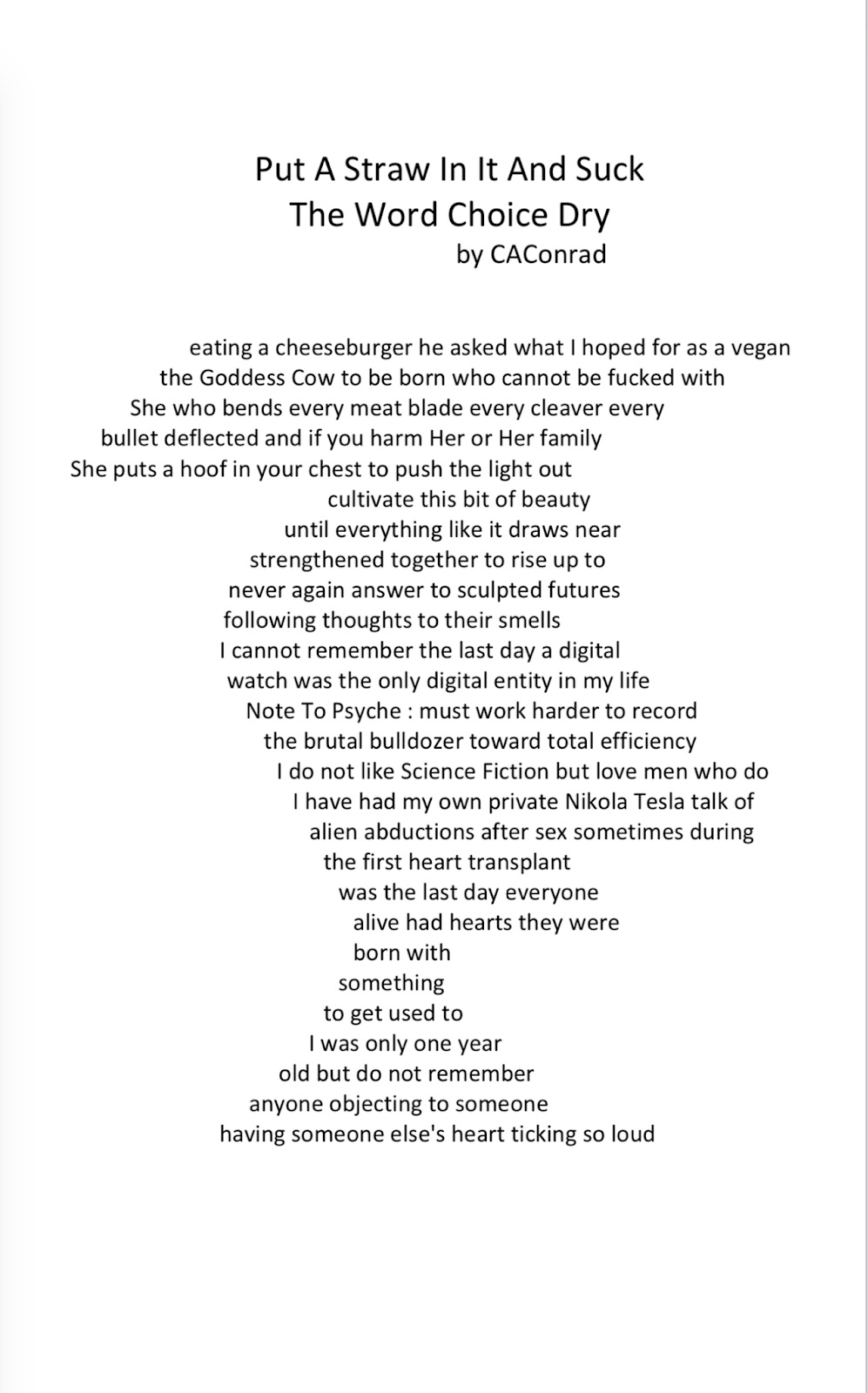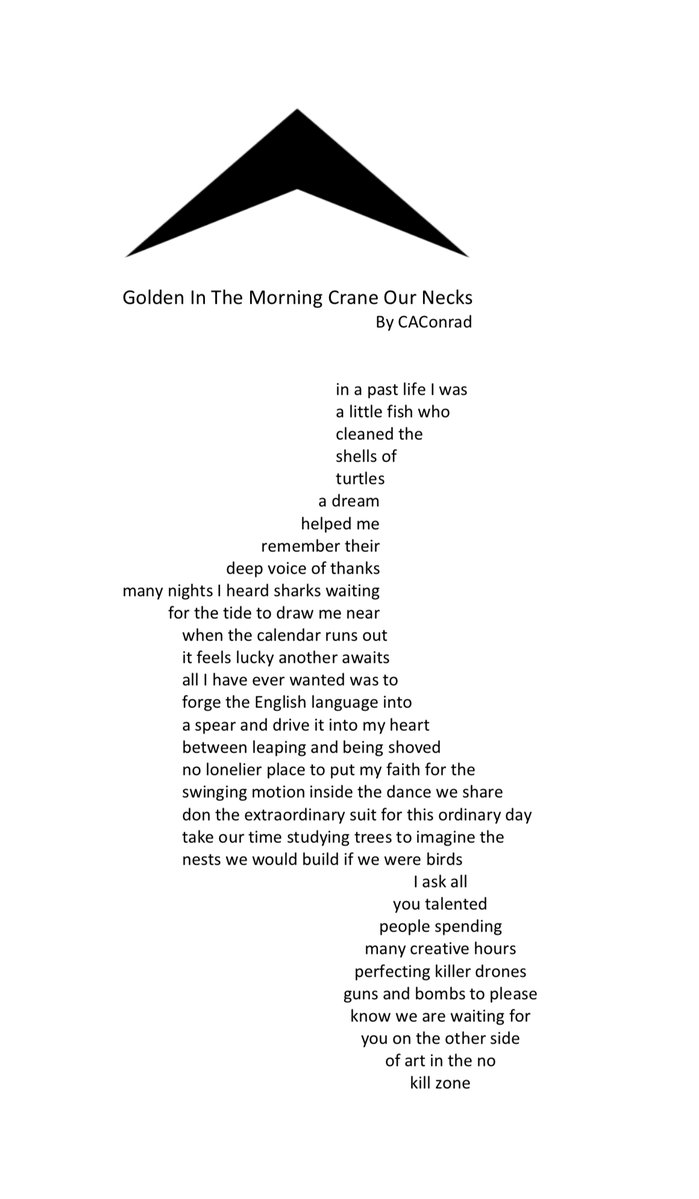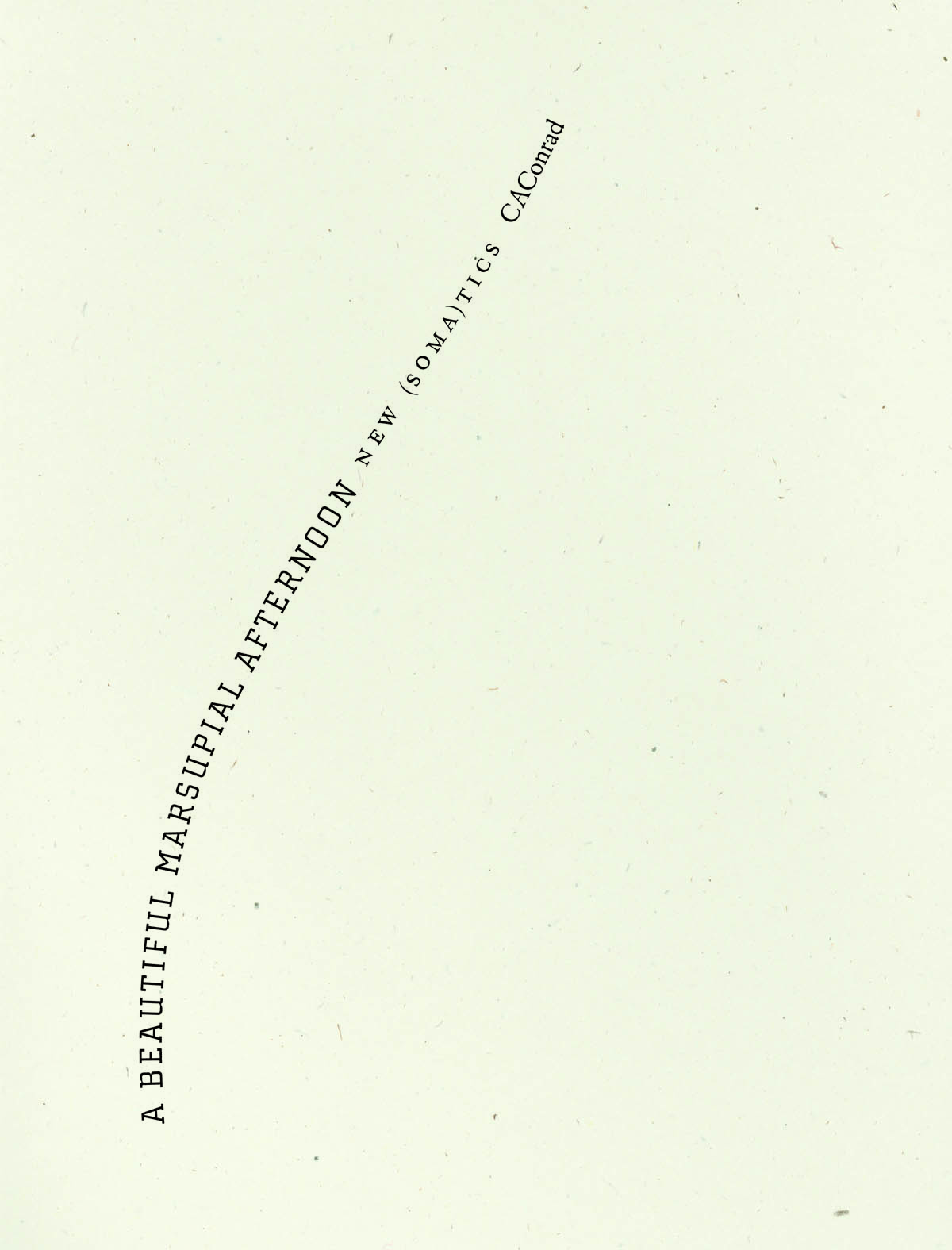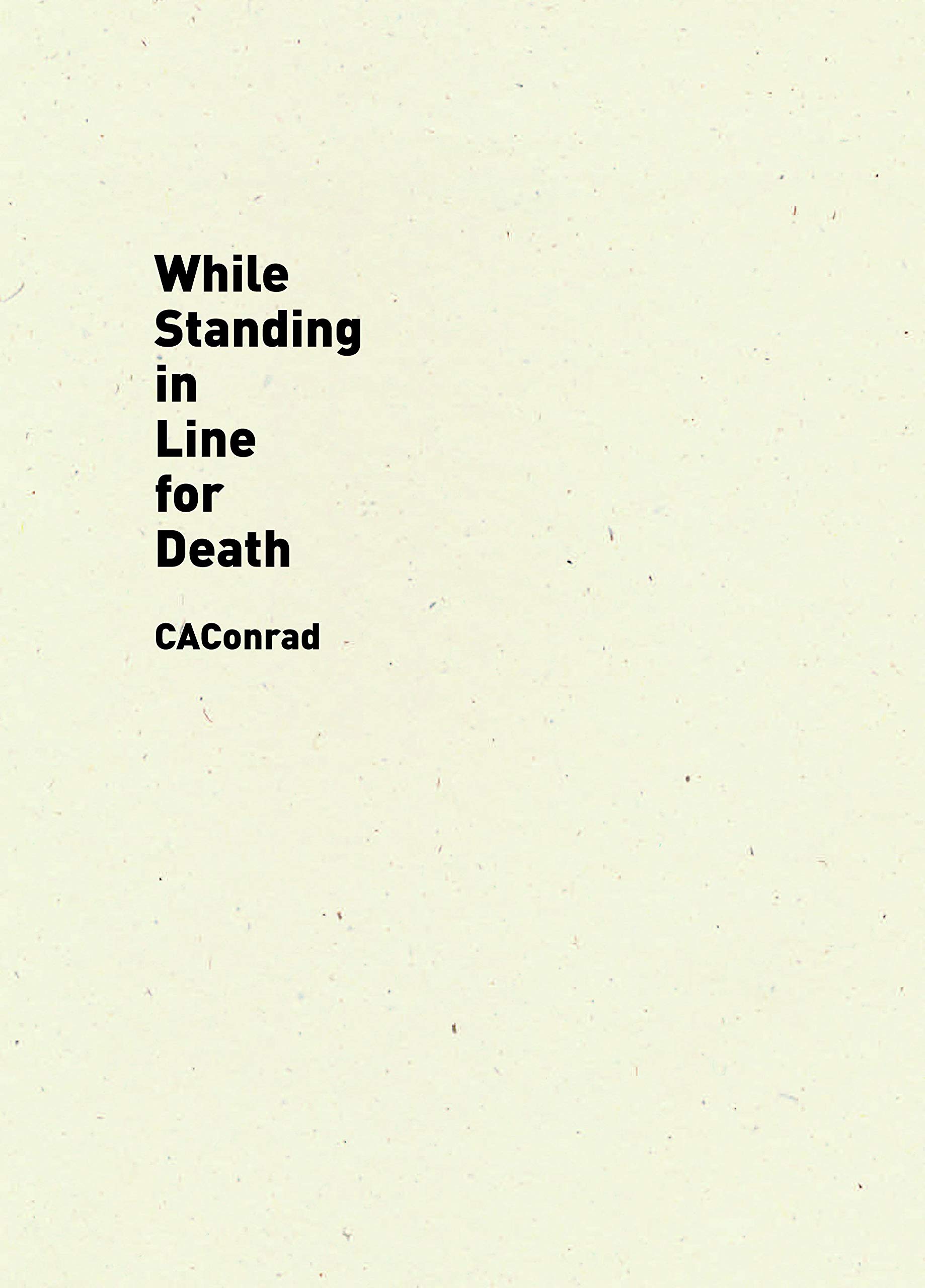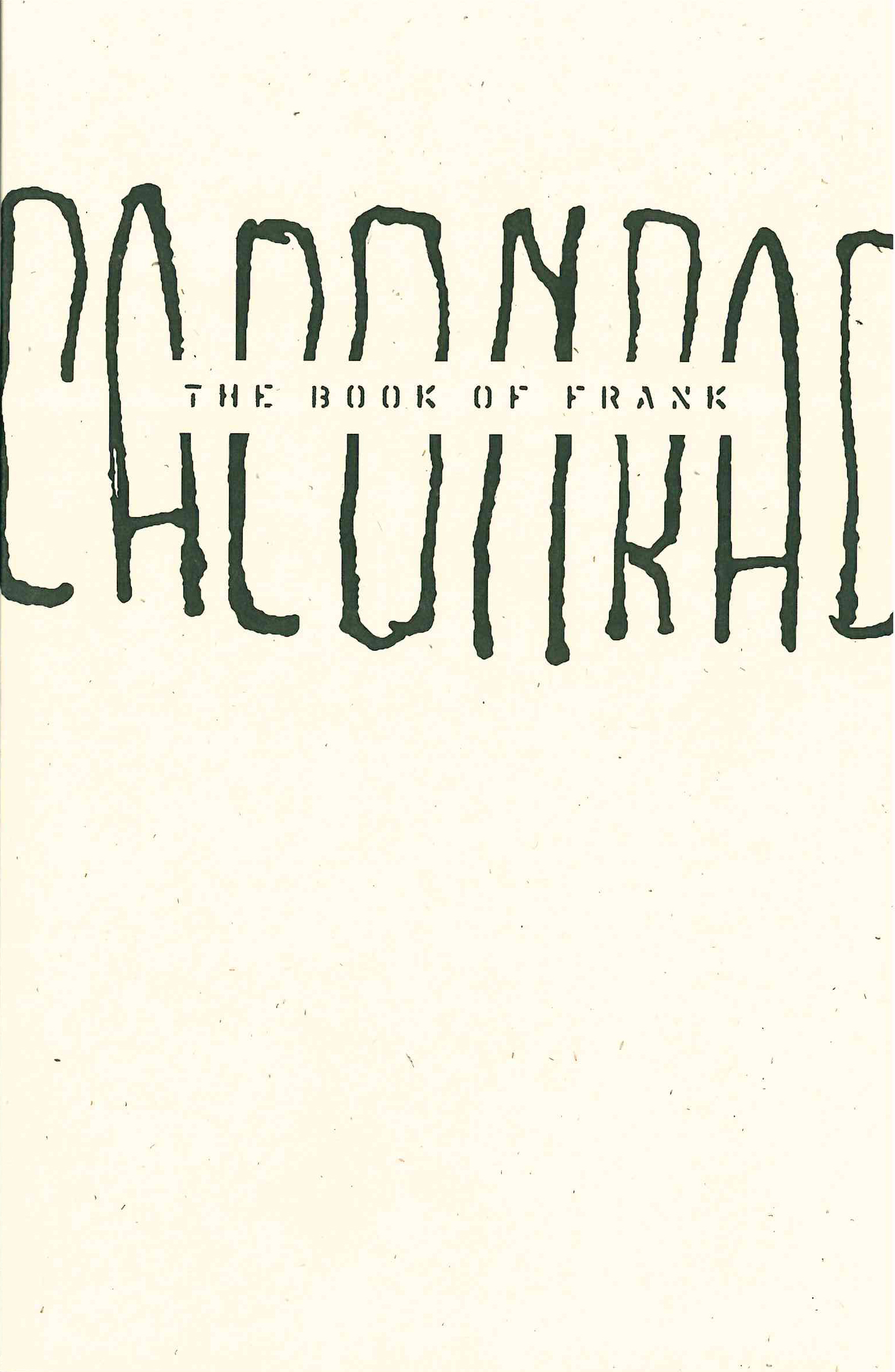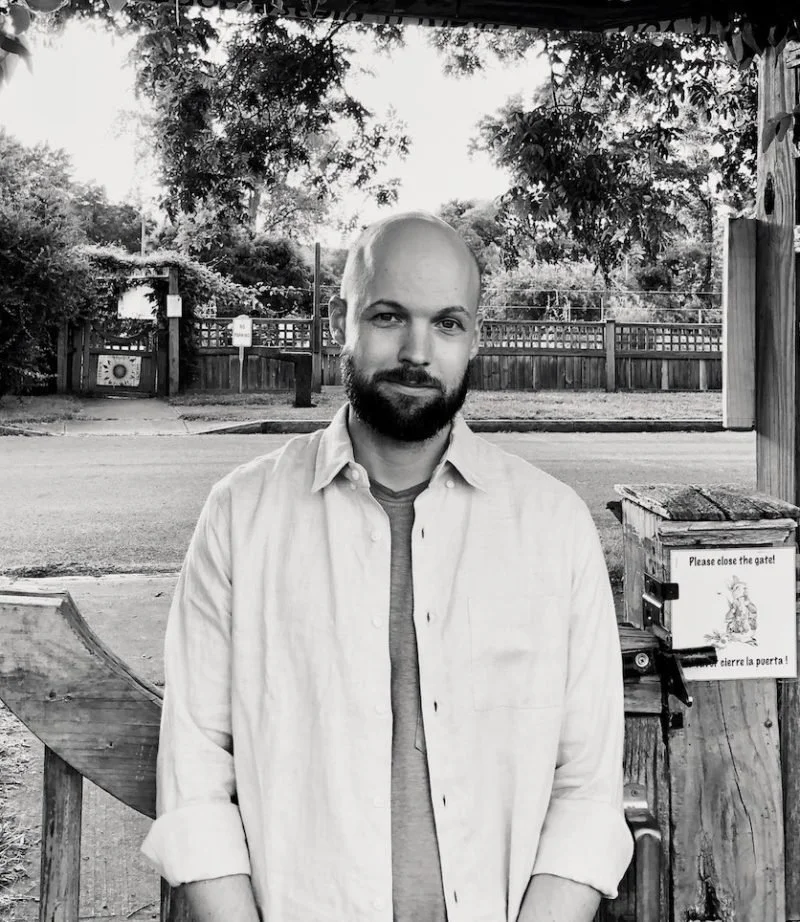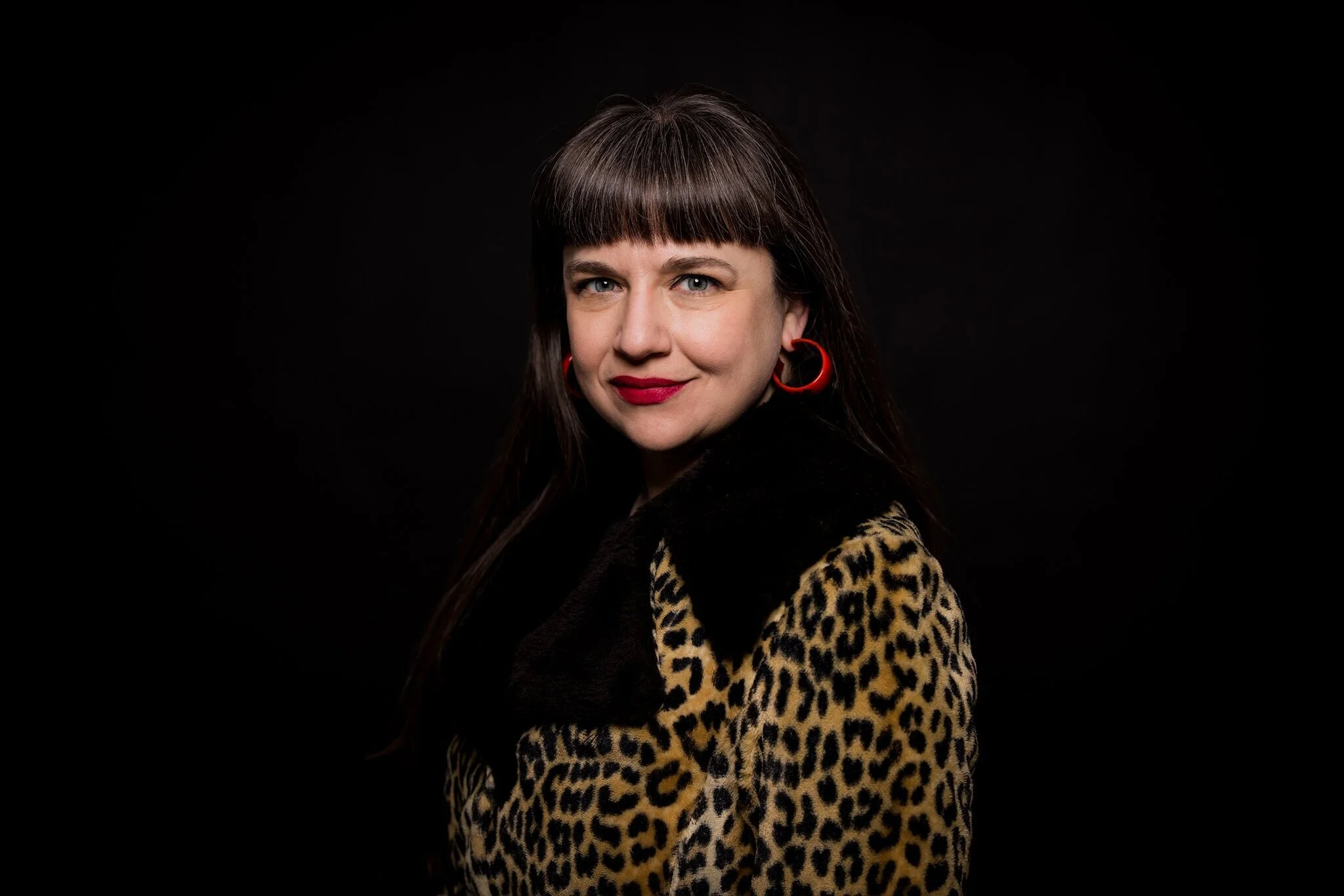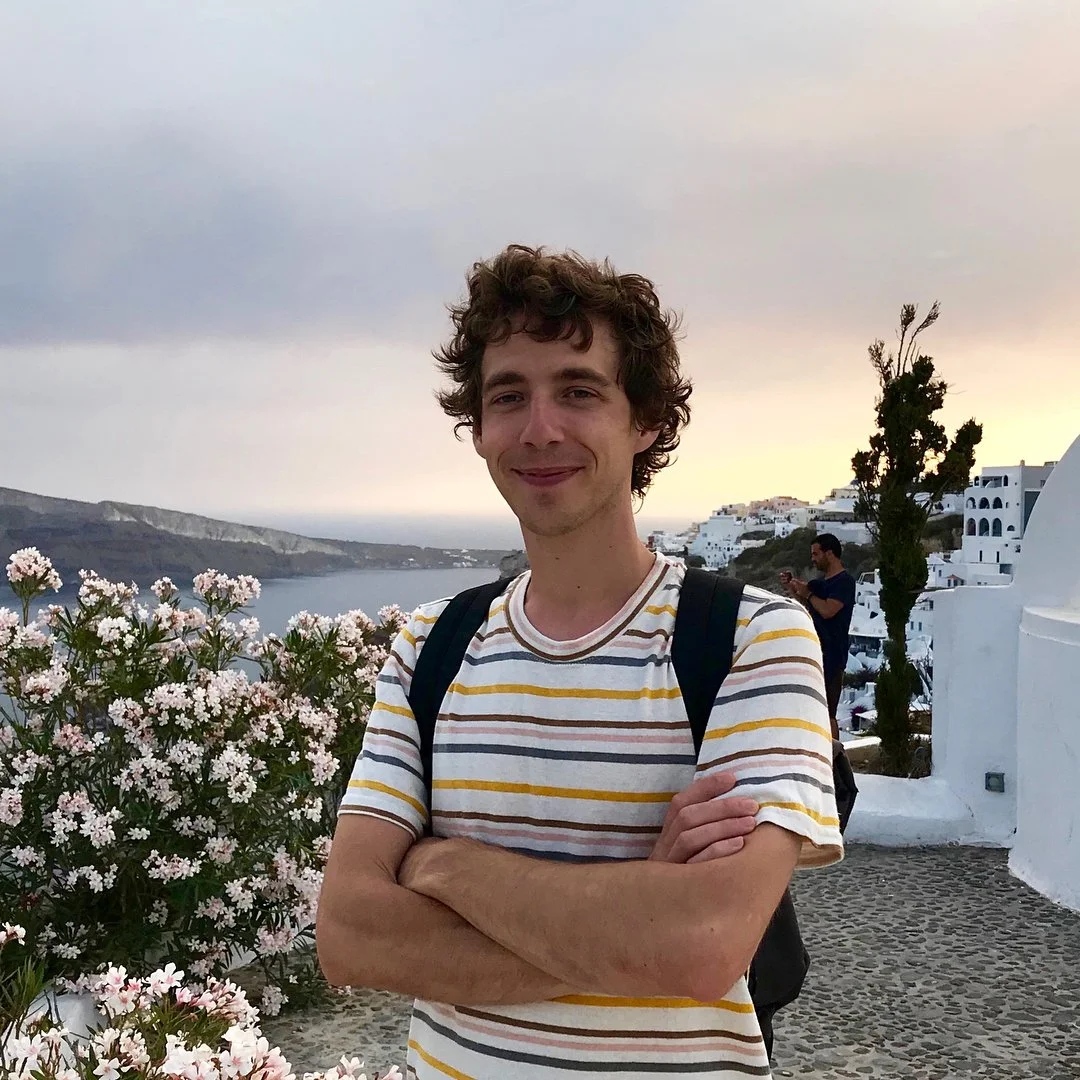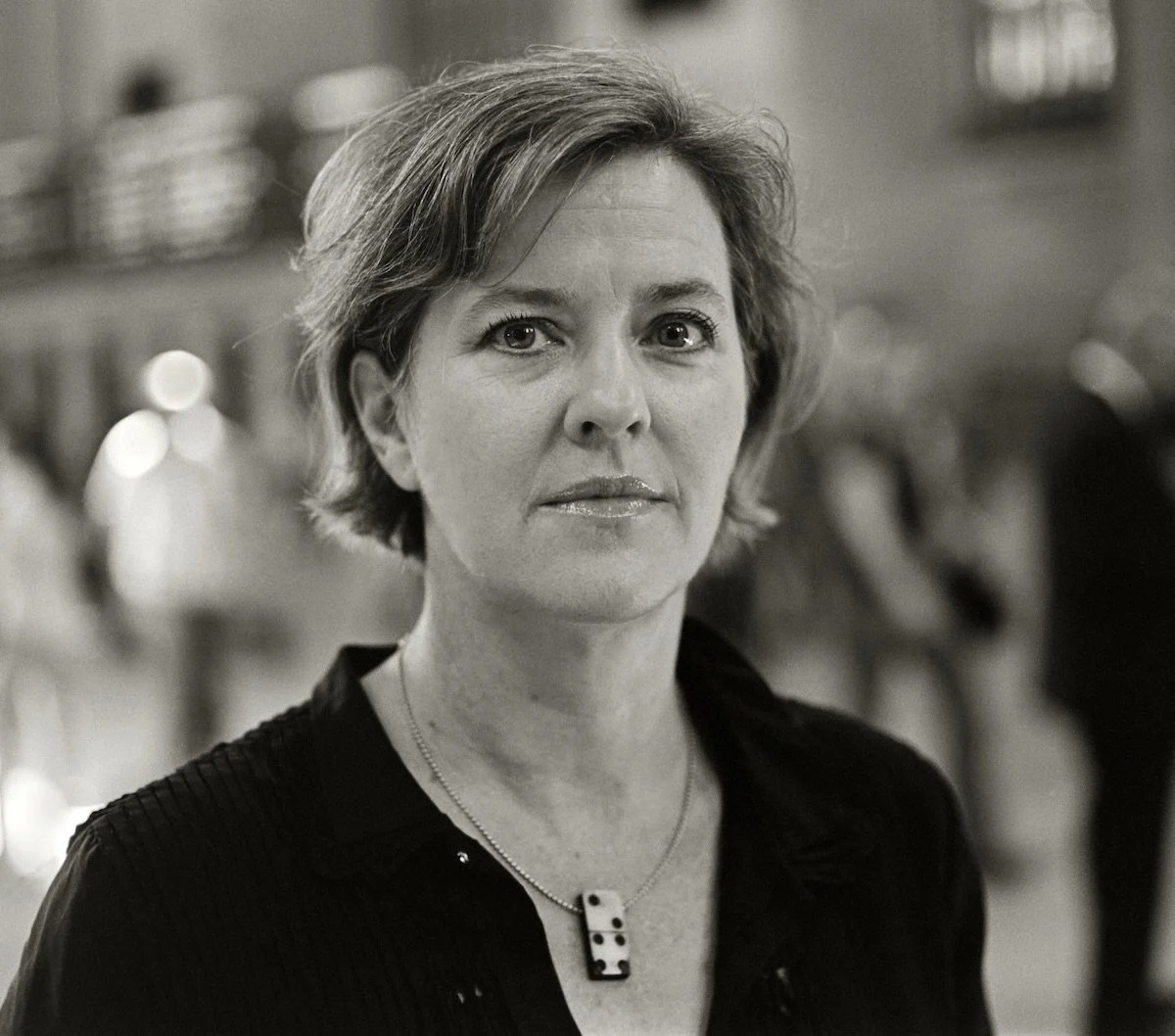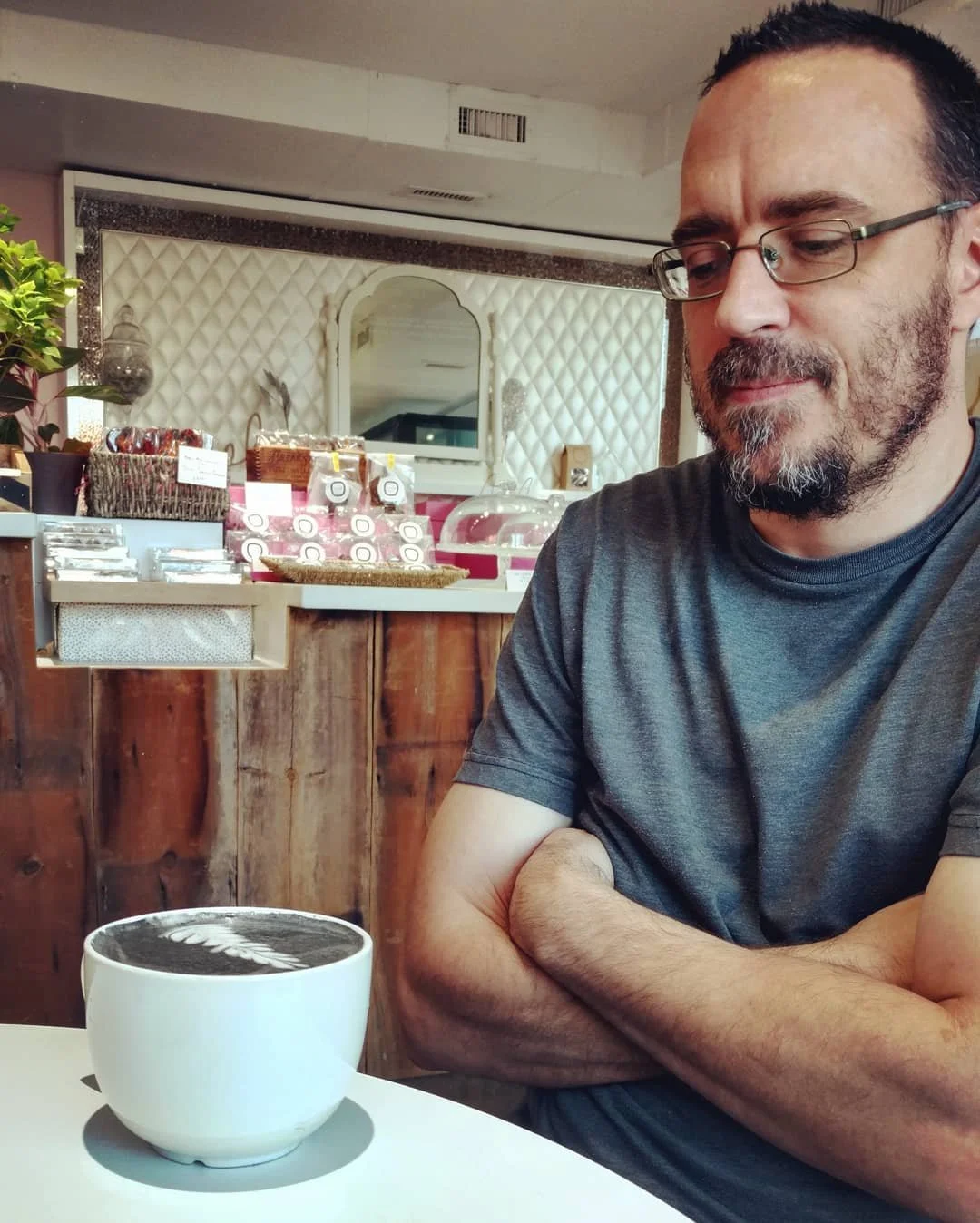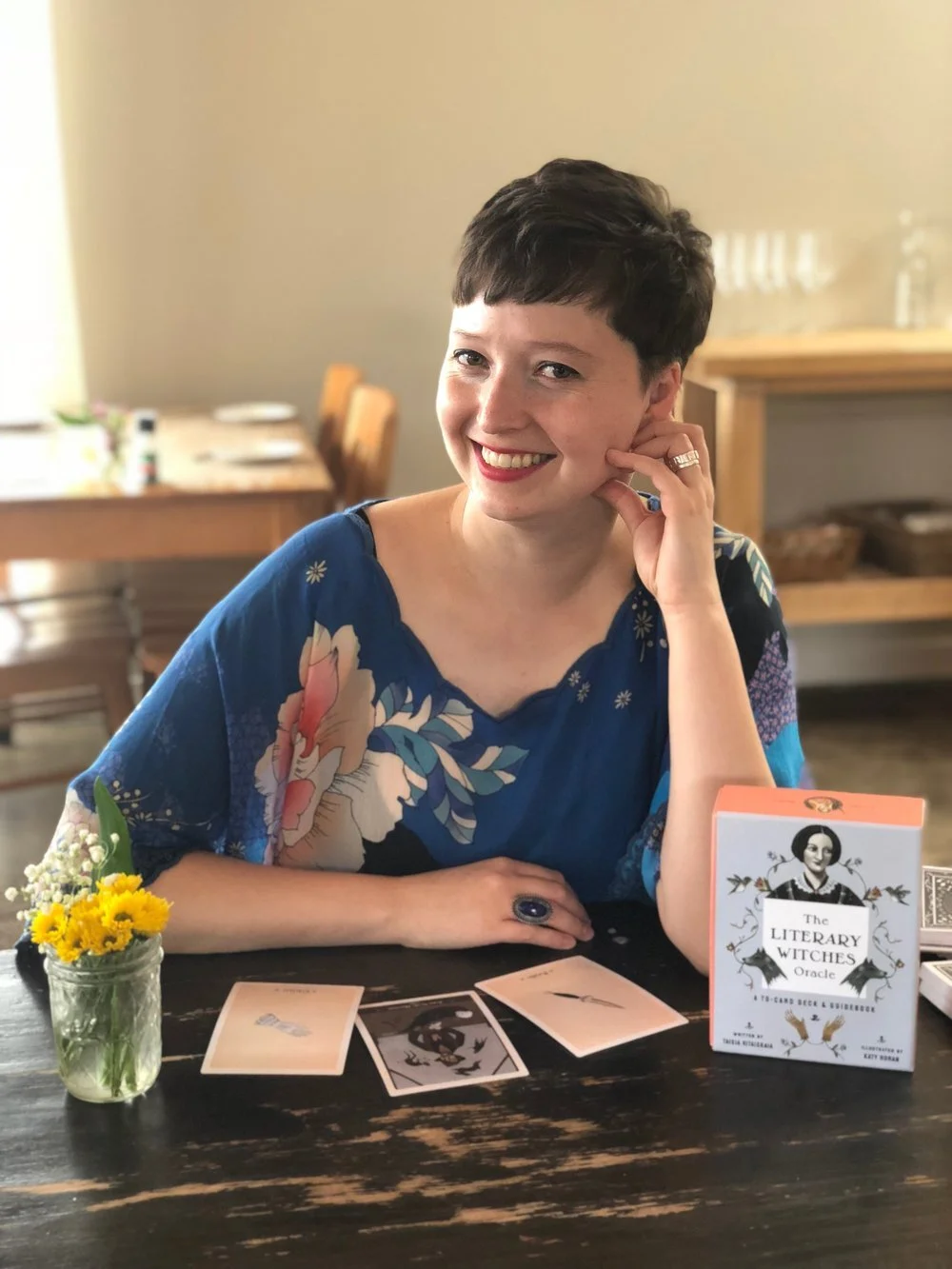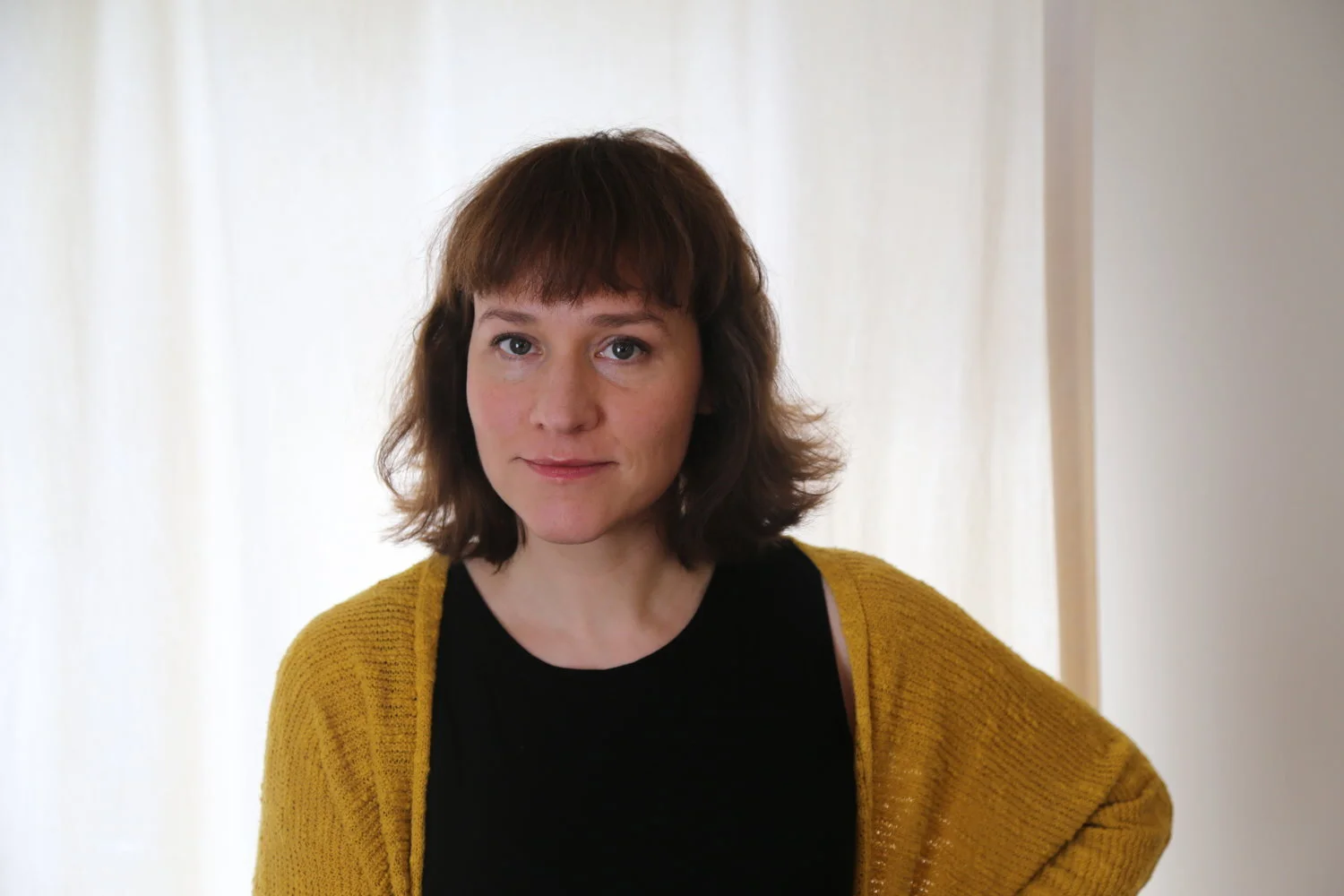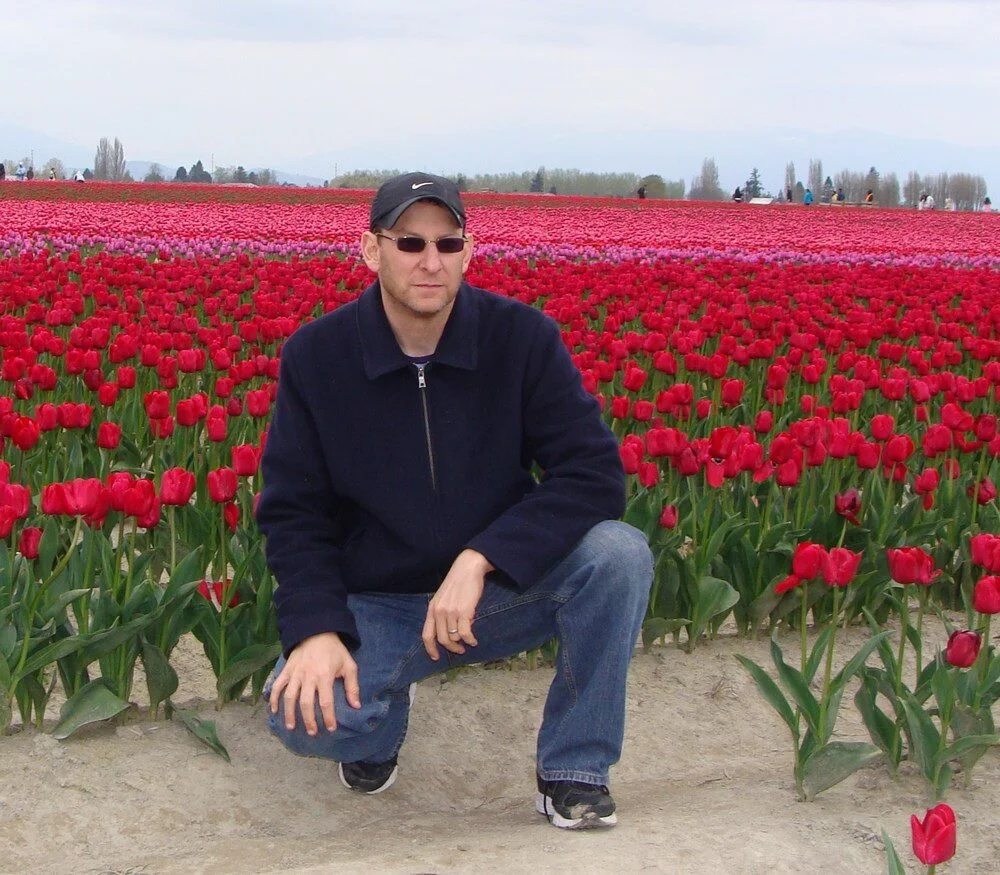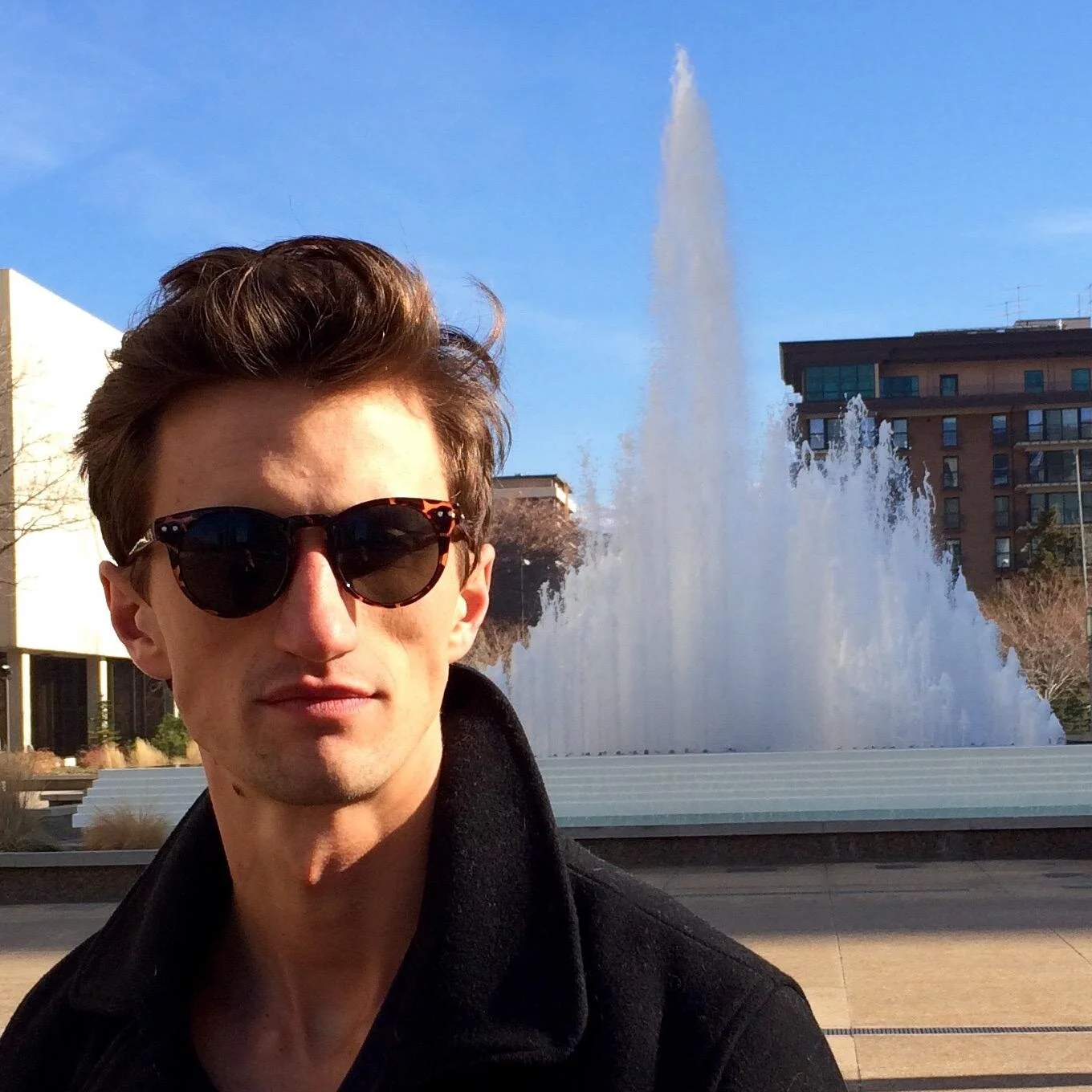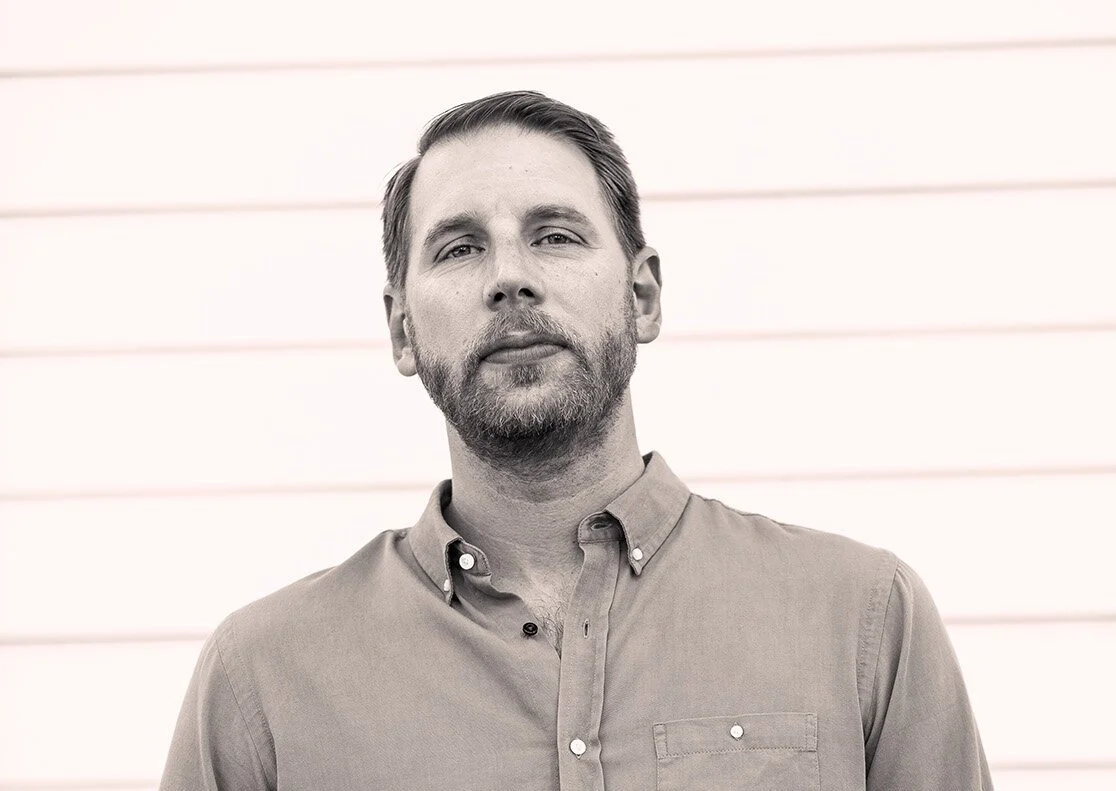Photo credit: Eve Ariza
It’s the first warm day in Chicago in quite some time. The first day of 2019, perhaps, where walking outside and venturing over to a public park sounds like a good idea. How fitting, then, that I share an interview with the poet (and author of nine books) CA Conrad. Conrad is planning a cross country trek in the Spring where they will meet various poets and writers in public parks. Along with this vision (titled Poetry Commons, more on that later), Conrad also discusses their captivating (Soma)tic poetry rituals, painting Santa on seashells, focusing on the present, visiting cemeteries, the stigma of writer’s block, and much more.
[CAConrad is a 2019 Creative Capital Fellow, and the author of 9 books of poetry and essays. While Standing in Line for Death (Wave Books), received the 2018 Lambda Award. A recipient of a Pew Fellowship in the Arts, they also received The Believer Magazine Book Award and The Gil Ott Book Award. Their work has been translated into Spanish, Greek, Polish, Norwegian, Portuguese, Danish and German. They teach regularly at Columbia University in NYC, and Sandberg Art Institute in Amsterdam.]
How has the start of 2019 been for you?
Thank you so much for this interview. I am currently preparing a poetic journey to start this spring called Poetry Commons. Since I spend a lot of time driving across the United States, I am going to meet with poets in their local, free, municipal parks at the picnic table areas to share food, conversation, and poetry. To be outside together is what excites me, and I want us to take walks in the park to look at trees, plants, insects, and to talk about creativity and what it means to our lives. It is essential we meet in the commons; the parks open to the public.
Poetry Commons, I like saying it out loud! When I mentioned it on Facebook and Twitter, I had no idea what the response would be. In the first afternoon, I received over a hundred emails from poets across the country wanting me to visit their town when I am traveling. There is a hunger out there for such an experience, and nothing could make me happier than finding this out and getting on the road to meet the poets!
Who have you been reading recently?
We just celebrated the anniversary of my dear friend Frank Sherlock surviving meningitis twelve years ago in Philadelphia. It is terrible to watch a loved one nearly die, but it is an utter joy and relief seeing them not just endure but flourish! He has a brand new manuscript that is one of the best books of poetry I have ever read, and he is looking for a publisher.
When our friends are sick, we do everything we can to keep them alive. The paramedic working on Frank thought that we were lovers and that he had AIDS, which was good because she took his illness more seriously as a result. I had a lover and many friends die of AIDS in the past, so maybe I was wearing my fear for my friend's life on my face? Her name was Lynnette, and she made the ambulance driver leave the driveway of one hospital to take him to a better one. And I mean she MADE the driver, she screamed at him to take Frank to Thomas Jefferson University Hospital, "HE'S TOO SICK FOR THIS DUMP TURN AROUND RIGHT NOW!" More than once I have wondered about her decision that most certainly saved his life because everyone who had meningitis during this mini-epidemic who went to the terrible hospital, the one that was soon forced to close its doors permanently, they all died, including another friend's brother and a pregnant woman and her unborn child.
Lynette allowed me to ride in the ambulance and I watched in horror as she restarted his heart. She was screaming at the driver over her shoulder and switching back to Frank with a voice of calm and reassurance. It made me feel guilty for lying to her about his insurance card, which did not exist because he did not have insurance. I love Lynnette, thank you, Lynnette, for saving this brilliant friend and poet! I felt terrible lying to Lynette about his medical insurance, but I did not feel wrong lying to the doctors or hospital administrators about it. In the 1980s and early 90s, doctors in several Philadelphia hospitals knew and hated me because when my friends with AIDS-related symptoms were under their care, I was a terror if there was neglect or if I witnessed homophobia. Bigotry against queers was never more hostile and rampant in my lifetime, and some doctors were okay, but I told more than a few of them that they should look for work down the street flipping burgers instead of tending the sick. By the way, the nurses back then were always the most attentive, loving, caring people working in the hospitals.
After Frank survived meningitis and the heart and kidney failure that came with it, his poems changed because the poet was transfigured. I know the word "shaman" is overused, but when you look at the origins of the word and find that it can mean someone who has survived a life-threatening ordeal, it is the wisdom they share with the rest of us from the near-death experience that puts them in the shaman category. His eyes, nose, all of his senses were heightened, and his poems reflect these transformative powers. This new book seeking a publisher could not have been written by anyone less than such a brilliant poet who is also a tenacious survivor! I cannot believe my luck in having such a terrific, radical queer, pansexual poet friend who is in my chosen family, or as I would rather say, "real family" category for me!
His extraordinary new manuscript is titled The Sun Is Jaguar & I'm Awake, and if I were a publisher I would not hesitate to publish it and carry copies with me to place in your hands and tell you how much you need to read these poems! His previous, most recently released book from 2014 is titled, Space Between These Lines Not Dedicated. It is published by poet friend and publisher Jenn McCreary on her ixnay press. There are a limited number of copies left, and I encourage everyone to get one while they can, please see this link. Last year Shanna Compton reprinted on her press Bloof Books the collaboration I did with Frank titled, The City Real & Imagined, and can be found at this link. The cover photo of that book is by the fantastic photographer Zoe Strauss, and I love it! I am very grateful to these publishers! It is an extraordinary thing to have someone take such good care of our poems alongside us and to make a book as beautiful as these books are!
Your last three books featured poems as well as (Soma)tic rituals. Will your next book follow in this same style or do you see it becoming something different?
The rituals are always different. That's the thing, each one is entirely different and the poems wildly unpredictable, which I love more than anything. Currently, I am hard at work on a very long (Soma)tic Poetry Ritual called, "Resurrect Extinct Vibration." There are 9 ingredients to this ritual, and this [“Glitter in My Wounds”] is one of resulting poems from last year.
Along with your own poetry, you are also an enthusiast for writing rituals. Given how you so often craft your own, do you ever find yourself looking for outsider prompts/rituals? Is writer's block nonexistent for CAConrad?
The rituals, yes. They are different from the usual prompts. They are not merely interested in flushing out language, they are about changing the way we see the world, and not just for the moment for constructing the poem, but in general, for life.
The factories where my family works were the impetus for these rituals. When you are raised by people who spend most of their waking hours being extensions of machines, the coping mechanisms they developed will knit themselves inside your DNA. When you are standing at a metal punch machine all day for instance, why would you want to be present for that? While working all day their minds are depressed about the past and anxious about the future, and when they leave to go home, they do not know how to shut that off to be able to relocate themselves inside the present.
The (Soma)tic ritual creates a space of extreme present. It is inside these structures where we get to embrace the creative viability of everything around us more fully. A deeper appreciation of being alive is an unexpected effect on our lives.
But about writer's block, it is not a block of the writer's; it is a block of the world's. I want to stop calling it writer's block and start calling it world's block. This culture of jobs and careers and consumption is the destructive nature behind the mythology of blaming the writer for not being able to write. The world as we live it is designed to mutilate our creative core, make us obedient, submissive, buy things, work, buy things, work, shop, shop, work, shop! I reject much of the world I am asked to commit to and participate with, and in doing that I shut out as many of the tools as I can that the ruling power structure has in place to stop me from writing which is to say stop me from thinking for myself, about my life, or question the life expected of me.
If your mind is not expanding in multiple directions as a writer, then you need to step back and examine what it is you are doing before this false belief in writer's block shuts you down. The more we fight the acceptable design of this human world the better our writing will become. In the end all that matters is who the writer is behind their sharply focused eyes.
For this ongoing author interview series, I'm asking for everyone to present a writing prompt. It can be as abstract or concrete as you please.
How about a ritual? I have this link with suggestions for the ritual.
What is troubling you? Is there something happening in your life that is unsettling? Or something tedious, like a monotonous workplace situation? It is essential to write there, in that place, wherever and whatever it is. Do not get up earlier to write, do not schedule time on your calendar; write inside your life precisely as it is. If we can write at any time instead of relegating writing to a particular location, then we are free, and will never need anyone giving us prompts ever again. Is someone you love sick or dying? Write right now by diving into that relationship. Stop pushing back against your feelings. Or maybe you hate to do the dishes or laundry? Have a notebook on you at all times. Start seeing exactly what Alice Notley means when she says, "Poetry is so common hardly anyone can find it."
Your poems uniquely take shape and feel like visual art. I don't know anyone else who has poems that look like yours. How did this structure/style come about? How does the blank page guide you?
Thank you very much. If the page were guiding me this answer would be much easier. Before starting to write through (Soma)tic poetry rituals in 2005, my poems were almost exclusively flush left margin. There is a different spirit at work in me since then, and whoever these ghosts or spirits are who are working with me, the poems need to sculpt the page, and I am not even sure how or why. I have fully surrendered to the process and feel both my poems and my life are all the better for it.
Do you practice automatic writing or do you slow down time and tediously focus on each and every line?
We choose to write, but are we writing on our own? The Muse, the ghosts, the spirits, they are genuine, and I have watched poets lose their Muse more than once in my life. I believe in the occult accounts of Hannah Weiner, Merle Hoyleman, Jack Spicer, and others. But this is all to say there is no such thing as automatic writing because we are not writing the poems alone in the first place. (Soma)tic poetry rituals are a category of conjuring.
What matters to me is the orchestration of the ritual ingredients which yields the raw notes. First, my favorite discovery is that every added ingredient to a ritual, or shift of an existing ingredient, changes the way the language comes out of me. That is why every ritual produces poems that would never and could never have been written in any other way or time in my life.
Second, the speed of the writing is essential. We all have internal editors which we have been cultivating all of our lives to be able to communicate properly, but these editors do get in the way of the raw notes. As soon as my mind wanders down the thread of an idea or forms a complete thought, I write faster. The magical language, the nuggets that become the best parts of my poems are never from notes where I was consciously writing. Trusting ourselves inside the ritual is a risk at first. Getting ahead of the editor, and then putting that into cruising speed to keep the flow of language filling the page is where the poem gets its best clay.
What's one literary magazine that was formative in your early poetry acceptances, and what's one literary magazine where you hope to one day be published?
There were no magazines that were formative for me because I never wrote poems to develop a relationship with an editor. They either liked my poems or they did not, but there were poetry magazines in the 1980s that my friends and I traded, like Wormwood Review, Poetry Motel, Exquisite Corpse, Chiron Review, and others. Before the Internet a poet's relationship with postal workers was personal. In those days editors took time to type rejection letters, and they often did not waste the opportunity to ridicule or dismiss our poems. With a large red magic marker, I would write FUCK YOU over the rejection and stick it on a corkboard that I had hanging above my desk.
It is imperative that we find ways to feel better after being attacked for our poems. The second ritual in my book While Standing in Line for Death is called "You Don't Have What It Takes To Be My Nemesis," and it is an exorcism to rid myself of detractors and haters. I put photos of my enemies' faces on a computer document then printed it out, and this became the rolling paper for a cigarette. I covered their faces with healing herbs and smoked them away! It felt great, and I loved saying goodbye to them on a braid of smoke! I dedicated this ritual to my dear friend Dorothea Lasky who is a terrific poet who has also been viciously attacked in person and online for her poems. We need to be there for one another because our attackers would love nothing more than to make us quit writing. We could spend hours debating where this disease of the writer comes from, like do they believe getting someone to feel shitty and stop writing leaves more room for them to get ahead? Is that it? It feels important to figure out exactly what drives people to be so vile and competitive to be able to confront them better.
W. H. Auden once wrote, "...poetry flourishes when the opponents are determined and evenly matched but, if any party gains too complete a victory and succeeds in suppressing its rivals, poetry invariably declines." I especially like that he makes it clear how poetry itself suffers from this behavior. I have personally known dozens of poets in my lifetime who have quit writing because they were so sick and tired of the cesspool behavior of their peers. If there is no joy what are the expectations?
Do you require noise or silence while you write?
I never know what kind of atmosphere awaits me for a ritual, especially if it is one I will be doing outside. One way to answer your question is to say I keep myself open to whatever happens to be going on when I arrive. For instance, in my latest book, While Standing in Line for Death, there is a ritual called "Denise Levertov vs. Bruce Lee." Levertov is buried in Seattle, and in the ritual, I gave myself 27 minutes to find her grave after entering the cemetery, but if I did not see her, I spent the next hour with the grave in front of me. What I did not know when initially planning this ritual is that Bruce Lee is also buried there. His super-fans arrive from all over the world to visit his grave, and they wait their turn to have pictures and videos made of them doing karate at the site, making those caterwauling sounds the iconic film star used to make while performing his masterful martial arts. There was a Bruce Lee soundtrack to my time spent looking for Levertov. That is the reality of the graveyard. I was not the least bit interested in wearing earplugs to drown out these sounds but instead wanted the experience to be authentic.
However, when it comes to taking the raw notes written inside the ritual and later shaping them into a poem, that is different, that is when I like to be quiet and alone while working.
What artists/albums have you been enjoying as of late?
I am a huge fan of the New Zealand musician KRAUS. Most of his music is online at FREE MUSIC ARCHIVE, and my favorite track is "Burn That Cheque." Play it as loud as you can and dance it into your day.
If you can, please provide a photo of your workspace. What are some essentials while you create?
This photo is of the blanket I am using for my latest ongoing (Soma)tic poetry ritual, "Resurrect Extinct Vibration," where I lie on the ground across America, flooding my body with the sounds of recently extinct animals. The blanket was a gift from the Pew Foundation, and the quote they used is from my "Right to Manifest Manifesto."
Do you have any advice for writers/poets working on their craft?
It feels important to encourage those who have stopped writing and want to write again. At the same time, there are also other kinds of creative ruts people in our lives need help with, like over-production. My mother loves to paint Santa Claus on seashells. She really can see him in there, and I love to hold one and study how the focus of her eye becomes visible in a way that is very much not my eye, and probably not yours either. They are unique, and a friend told her she needed to sell them. And now she does, and she cranks them out. I have watched her initial joy at looking for Santa Claus in the exoskeletons of clams and oysters vanish inside the pimping of creative energy. She still sees him in there, and I love that who she is seeing is this one specific mythological gift-giving superhero over and over, but her love of creating has leveled itself under the need to produce for the various shops who sell her Santa shells.
I have a friend who is a successful artist, and she is exhausted with the rigors of the gallery system and producing for people who want to make money off of her. I convinced her to make some private art, something no one ever sees, something just for her. Everyone needs us as much as we need them, and now more than ever. When I started writing in 1975, there was no way to see that my first book would not come out until 2006. It still amazes me that I come from people who are only functionally literate, but I get to be a poet! Those thirty years of writing before my first book came out were never encouraged by the working class people who raised me, but I am here anyway, a poet!
Any final thoughts/words of wisdom/closing remarks?
If we are indeed going to make sustainable, lasting things and ideas which cause the least harm on this very damaged planet, then we need everyone, and I mean everyone we know being creative because it is only through creativity that we can conceive the actual path to making the aesthetic changes we need and want. Some people are just waiting for change, hoping, lots of hoping going on. Let 2019 be the year we encourage those who use the word hope too often to pick up a paintbrush or pen and notebook and express themselves. The fiction of hope is damaging, and it is in the future, hope, never present. Whatever future we hope for can only be made in the present, and we need less hope and more care for the present.



